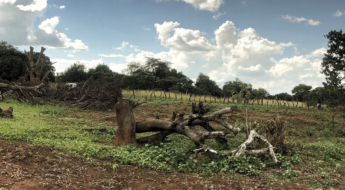The Shift to Global South
The world is changing and today we clearly see the landscape of Christianity transitioning from the Global North to the Global South. Majority world counties in latin America, Africa and Asia that have been the recipient of missionary work all these years are now becoming the center of Christianity. What does this mean for those living in the United States and what part will we have in helping reach others beyond our borders?
Never before has there been such a need for more laborers to take up the call in local and cross cultural evangelism. The fact that the Gospel is spreading, in itself is amazing and should be a cause for rejoicing. We can see that something is happening and that there’s fruit to our labor in these other areas of the world. But while missions activity in the Global South appears to have increased substantially, the opposite can be seen in the United States and elsewhere in the northern hemisphere.
America still has a very strong missionary presence around the world and is home to many solid and faithful churches and sending agencies. However, some have responded to this shift in Christianity by asking whether it’s still profitable to send American laborers to serve internationally. Many would argue that it’s more cost effective and efficient to fund nationals in majority world countries. I’m seeing this idea preached more and more in churches across the United States. While this methodology is definitely more convenient, there are a number of things to consider that should make this a very cautious choice.
The church of global south is still young and growing.
What these young Christians have in zeal, they lack in knowledge and discipleship. It’s great to go out on a short-term trip to train local leadership on the ground. This can help but it’s not the solution. Inadequate training and time spent in making disciples can actually cause more harm than good, even if we come with the best intentions. Without consistent training, these local pastors will often mix their limited theology with traditional, pagan or heretical beliefs.
Distance offers little accountably
The growing movement in America to have a sister church thousands of miles away has become a badge of honor in some circles. The danger is that there’s no accountability with funds or resources. While pictures can be emailed back to show progress, it’s quite common for these satellite churches to give inflated amounts needed and pocket the difference. I addressed this issue once with an American pastor and he said, “I have so much here in America and these people have so little. If my national pastor takes a little and skims off the top, who am I to judge him on that?” This attitude creates a client / sponsor relationship which suppresses the national into always being subservient to the American dollar. While perhaps starting with good intentions to setup a missions partnership, this mindset leads to “spiritual” colonialism.
How can we get involved in this shifting landscape?
When we look at the church of the Global South, we see something that’s alive and growing. There’s an interest and zeal in the church that’s lacking from its northern counterpart. That said, the one element that’s missing is proper training. One of the greatest contributions that America can still offer is in teaching these new converts and in assisting them with building on the foundation of their faith. From the spiritually hungry countries in sub-Saharan Africa to those that are closed off to the Gospel in South-east Asia, both areas are hotspots of Christian growth right now and both have similar needs. They need laborers to physically go there and help the cause of Christ on “ground-zero” where things are happening. My time in Zambia has shown me that the Christianity in Africa, though zealous, is not founded on knowledge. They simply lack a proper foundation and Biblical training.
We’re all on the same team and we have work to do!
- Get involved in the ministries of your local church.
- Adopt a spirit of humility and recognize that there’s other “players” in the great commission besides the good ‘ole USA.
- Take a short-term missions trip and help those that you’re currently invested in.
- Work through your local missionaries and ask what projects they need help with. From providing literature and Bibles to helping create centers for Bible education, you can help in ways that the Global South can’t.
- Build a mission awareness in your local assembly and get together regularly to pray for those working locally and abroad.
“So then neither is he that planteth any thing, neither he that watereth; but God that giveth the increase. Now he that planteth and he that watereth are one:and every man shall receive his own reward according to his own labour. For we are labourers together with God:ye are God’s husbandry, ye are God’s building.” -1Cor.3:7-9
A New Era in Christendom:
We can’t let our world-view, become solely about what we’re doing and about things pertaining only to our own work and ministry. We risk losing sight of the big picture and our place inside the great commission. As the American church reaches out to the world and partners with the Global South, I think we’ll soon be surprised that the ranks of mission partners will rise and step up beside us. In fact, there’s a good possibility that American volunteers will soon be a minority in the work of the Gospel on a world-wide level.
By the early 1900’s the Christian population in Africa was around 10 million. By the year 2000 that number had soared to a staggering 360+ million across the continent. This marked the largest shift in Christianity to-date in history. These are our brothers and sisters in the Lord. They don’t need patronage (Read our article on supporting nationals) but rather real and invested partners that will work along side them.
Are you personally involved?










Leave a Comment